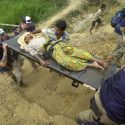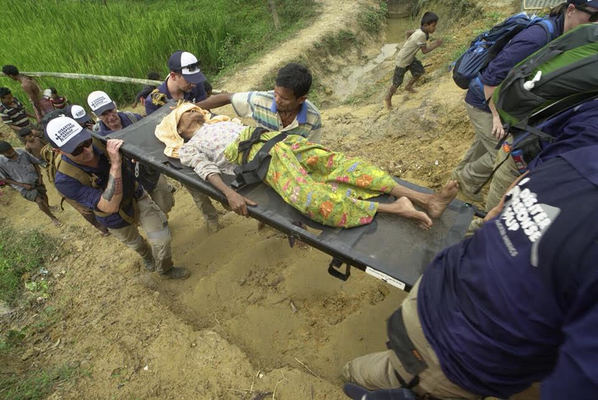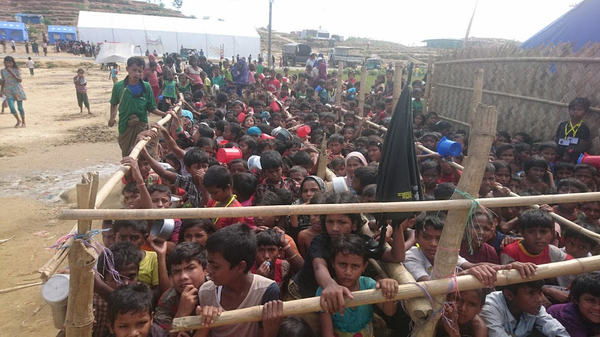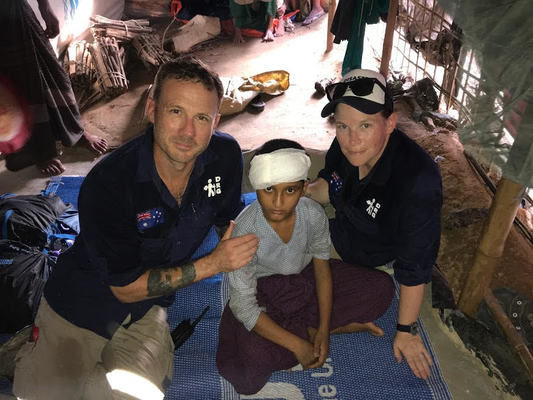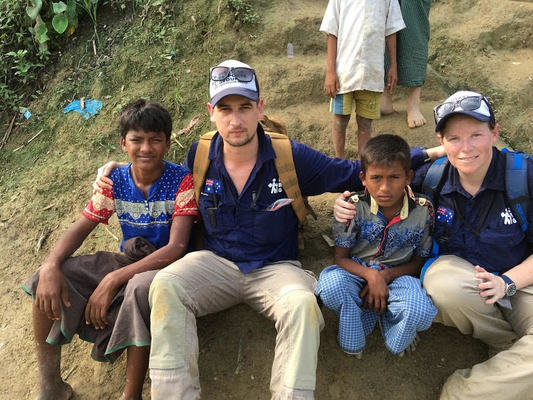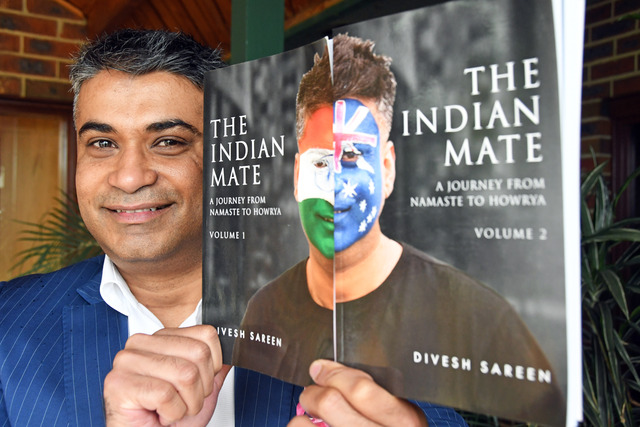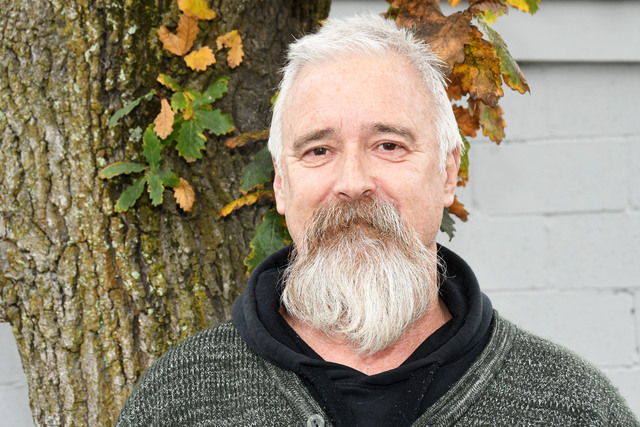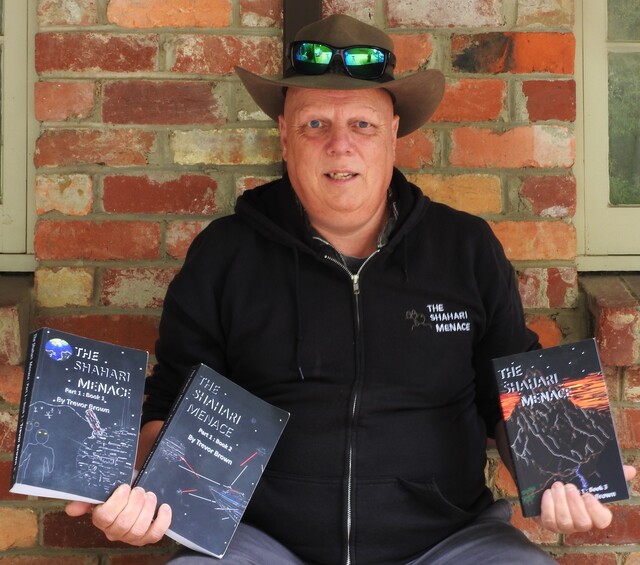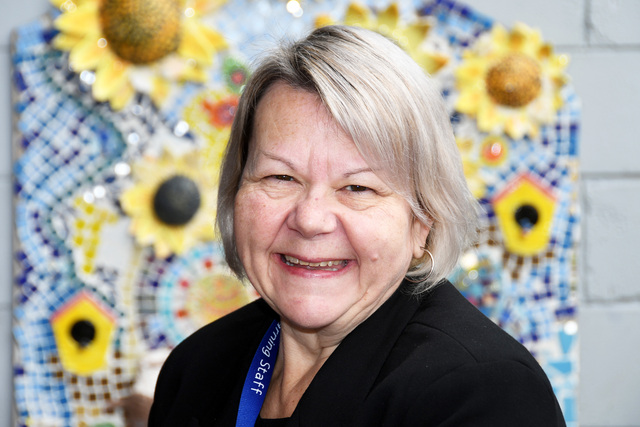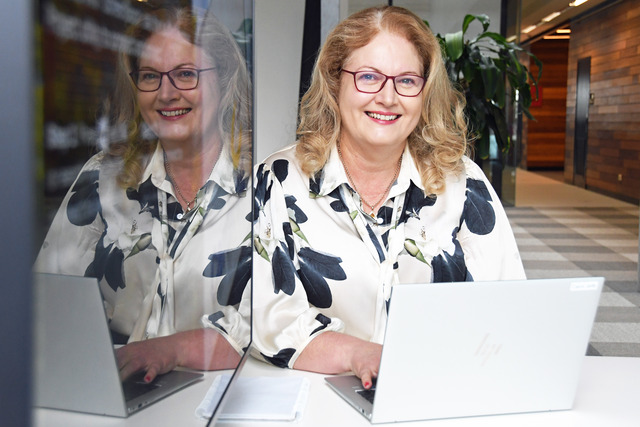By Brendan Rees
A disaster-relief medic from Narre Warren has likened the “pain and suffering” of Rohingya refugees in Bangladesh to “scenes reminiscent of the holocaust”.
Mel Robinson heard the “atrocities taking place” and wanted to make a difference, not simply by making a donation, but by venturing out there to help.
With a paramedic degree under her belt, she decided to volunteer as a backpacker medic on a two-week stint, self-funding her trip from 25 October to 9 November in the ever-worsening Rohingya refugee crisis.
“After a week in Bangladesh helping the refugees, my heart is full of tiny Rohingya footprints. Their scars, both physical and mental, are evident everywhere you look,” she recalled.
She said despite the Rohingya refugees witnessing “unimaginable horror,” some were still able to smile, adding it was a “determination to survive no matter what the odds.”
She says it wasn’t uncommon for her team to trek up to two kilometres on steep muddy tracks that winded precariously up embankments, while hauling a makeshift stretcher made out of bamboo to “find the sickest patients” who could not be reached by the bigger aid agencies.
Violence had forced more than half a million Rohingya people to flee from Myanmar to neighbouring Bangladesh in less than three months – half of whom were women and children.
Mel was part of an eight-person Disaster Response Group (DRG) team made up of doctors, paramedics, nurses and psychologists to provide post-disaster medical care to the Rohingya people.
“The stories were horrific. Children who had witnessed the beheading of their parents, mothers who had been made to watch their babies burn to death after being thrown onto fires and when everyone had been killed then they were raped.”
She said nearly 25 per cent of all households had a child caring for orphaned siblings or an elderly female left to care for orphaned grandchildren.
“Often these people are too scared to leave their shelters to seek out help after the violence and loss they have experienced. These were the people we were looking for … we would treat them where we found them if we could and if we couldn’t we would carry them to help.”
Mel said it was easy to feel “overwhelmed by the enormity of the situation.”
“You pass hundreds of people lined up for food and loaded into trucks to be transported in scenes reminiscent of the holocaust. I’m constantly left asking myself one question. If this is what they have run to, what horror have they run from?”
She was inspired by many refugees who would go to almost any length just to ensure her team’s safety.
“There is no better feeling as you’re slipping down a muddy slope carrying a patient on a stretcher than 10 hands suddenly on your back making sure you don’t fall.”
Mel says it’s time the “world stood as one” and let the Myanmar military know that these sorts of “atrocities must stop.”
“To just accept it because it seemingly doesn’t affect us directly is unacceptable.”
“The fear and terror they are subjecting these people to is unacceptable and will not be tolerated. Enough is enough, it must stop and it must stop now.”
Anyone interested in donating to the DRG, which is a volunteer organisation, to support the teams through supplies and logistics for their operation please visit https://chuffed.org/project/bpmdrg-bangladesh or their Facebook page at Backpacker Medics: Disaster Response Group.
“They are currently over there training refugees to establish a form of ambulance service that will allow the work to continue after we have left and any help from people with establishing that would be great,” Mel said.

